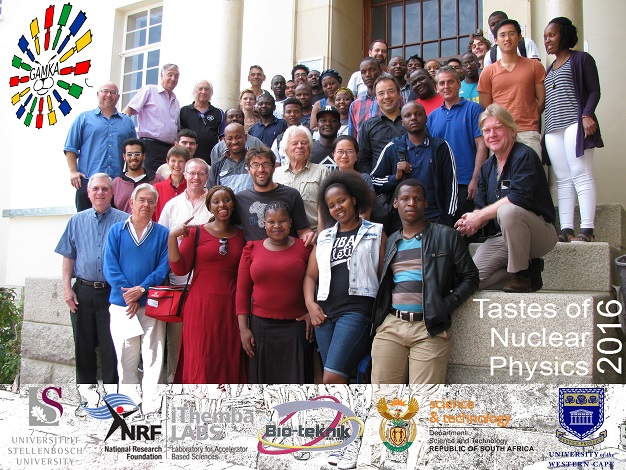The sixth Tastes of Nuclear Physics school was hosted by the Department of Physics at Stellenbosch University from 1 to 3 November 2016.
This year 40 physics students from the Western Cape were treated to lectures and workshops by nine leading international physicists, including Dr Sydney Gales, former director of the GANIL laboratory in France, and Prof. John L. Wood, emeritus professor at the Georgia Institute of Technology in the United States of America. Prof. Wood is also the co-author of the latest book on nuclear structure physics entitled Fundamentals of nuclear models (2012).
Prof. Paul Papka, experimental nuclear physicist at SU and organiser, says the aim of the forum is to give the postgraduate students the opportunity to interact with world experts on various subjects of theoretical and experimental nuclear physics, and nuclear astrophysics. "This week was very enriching both to students and more generally to all participants who were exposed to cutting edge nuclear physics research from various angles. We are very thankful to the speakers for their very inspiring presentations given to our undergrad and post grad students."
A wide range of nuclear physics topics were covered, including theoretical aspects of nuclear astrophysics, shape coexistence, clustering and giant resonances.
Students were also exposed to experimental techniques such as magnetic spectrometry and radioactive ion beam facilities, as well as techniques far from stability and ion trapping.
Prof. Papka says the topics chosen are relevant to international research and that which is taking place at South Africa's iThemba LABS.
"Recent developments at the Laboratory for Accelerator Based Science include the installation of a new tandetron accelerator. Some of the beam time from this machine will be utilised for measurements of nuclear reaction rates responsible for nucleosynthesis in stellar processes. These experimental investigations rely on the project for the new gamma-ray spectrometer GAMKA. A Rare Ion Beam facility is also underway to study nuclei far from stability.
"The new research activities offer many opportunities for MSc and PhD projects," he concludes.
Speakers' presentations are available at: http://www.physics.sun.ac.za/nuclear/tastes-of-nuclear-physics.html
SU's Department of Physics will host the school again in 2017.


